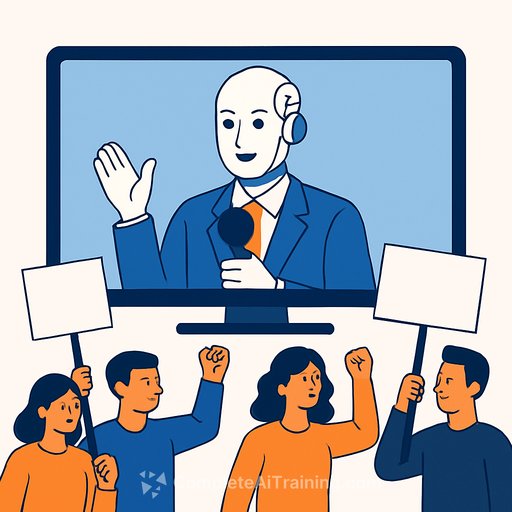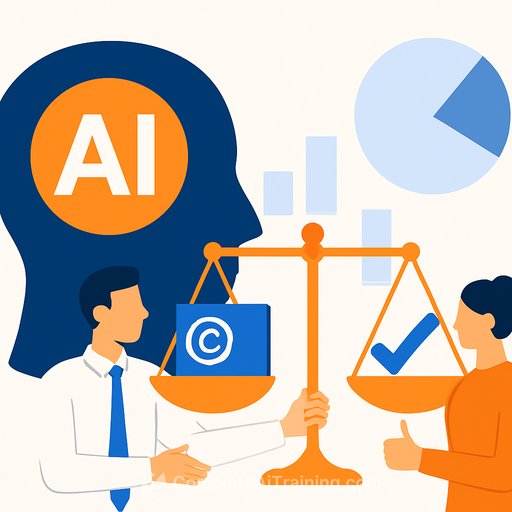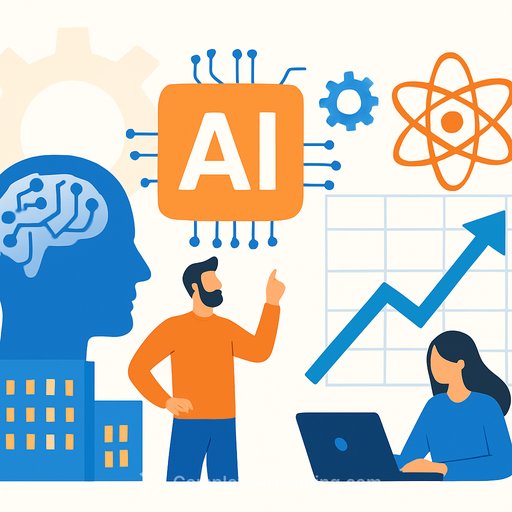AI presenters hit local TV. Creatives respond: consult us before you deploy
Broadcasters are testing AI. Creative workers in Malta are pushing back on one thing: don't replace us without a conversation. In a joint statement, Solidarjetà and the Malta Entertainment Industry and Arts Association (MEIA) urged local media to consult with creatives before using AI-generated presenters or content.
"It is of the utmost importance that its use does not jeopardise the futures of, or disrespect, creative workers… [Using AI] as a replacement of competent creative workers leads to a poorer product and further devalues Malta's creative industry."
TVM recently unveiled its first virtual presenter, an AI version of professor Alexiei Dingli, to front Artificial Intelligence in Our Lives. While Dingli sees potential quality gains, creative lobbies warn of clear downsides: use of artists' work without consent and growing precarity for already vulnerable workers.
The organisations called on broadcasters to open discussions now and urged the Culture Ministry and other authorities to develop a national policy for AI in creative work. They noted that unions abroad have taken strong actions due to the risks to livelihoods and standards.
Concerns aren't theoretical. Local extras on Gladiator 2 reported being scanned by producers and felt they couldn't refuse. The IDPC later said it couldn't investigate because the data controller is UK-based-highlighting the gaps workers hit when data and vendors sit outside Malta.
What creatives can do now
- Require disclosure: insist that productions declare where, how, and why AI is used in pitching, scripting, performance, post, and marketing.
- Consent for likeness and voice: no body/face scans, voice cloning, or motion capture without explicit written consent, scope limits, time limits, and fair pay for any digital reuse.
- Protect training data: prohibit training AI on your work without an opt-in license. Ask for provider names and confirmation that datasets are rights-cleared.
- Pay and credit guarantees: if AI reduces your billable scope, secure minimum fees, proper credit, and make-good clauses to prevent wage erosion.
- Label AI content: require on-air and online disclosures whenever AI-generated presenters or assets are used.
- Data safeguards: demand DPIAs, storage limits, deletion timelines, and vendor jurisdiction clarity for any biometric or performance data. Know your GDPR rights on biometric data.
- Audit rights: include the right to review AI usage logs, datasets (where feasible), and third-party vendor contracts.
- Union involvement: route AI deployments through Solidarjetà/MEIA consultation to set baseline standards and escalation paths.
- Liability and insurance: assign liability for defamation, deepfakes, and data breaches to the commissioning party; verify coverage.
- Extras: no scans as a condition of entry. If scans happen, pay for present use and future reuse with separate rates and opt-out rights.
Policy asks for broadcasters and government
- Consultation by default: formal engagement with Solidarjetà and MEIA before introducing AI into roles traditionally done by humans.
- Labeling standards: clear on-screen and metadata labels for AI-generated presenters and assets.
- No-replacement clauses: public funding and commissions should not displace paid creative roles with AI.
- Transparency reports: publish regular AI usage, datasets, vendors, and risk assessments.
- Consent-first biometric rules: strict limits on body, face, and voice capture with opt-in, fair compensation, and clear deletion policies.
- Jurisdiction clarity: ensure Maltese or EU oversight applies to data controllers handling local workers' data.
Upskill without giving away your leverage
Use AI as a tool to speed research, ideation, and rough cuts-but protect the human elements you're paid for. Build skills in prompt craft, editorial judgment, rights checks, and AI quality control so you stay essential to the process.
If you want structured learning designed for creative roles, see this curated list: AI courses by job. Learn the techniques that help you deliver stronger work while keeping your rights and rates intact.
Bottom line
AI can help production. It should not erase the people who make culture. Push for consultation, lock protective clauses into your contracts, and keep pressure on broadcasters and policymakers to set standards that respect creative work.
Your membership also unlocks:






